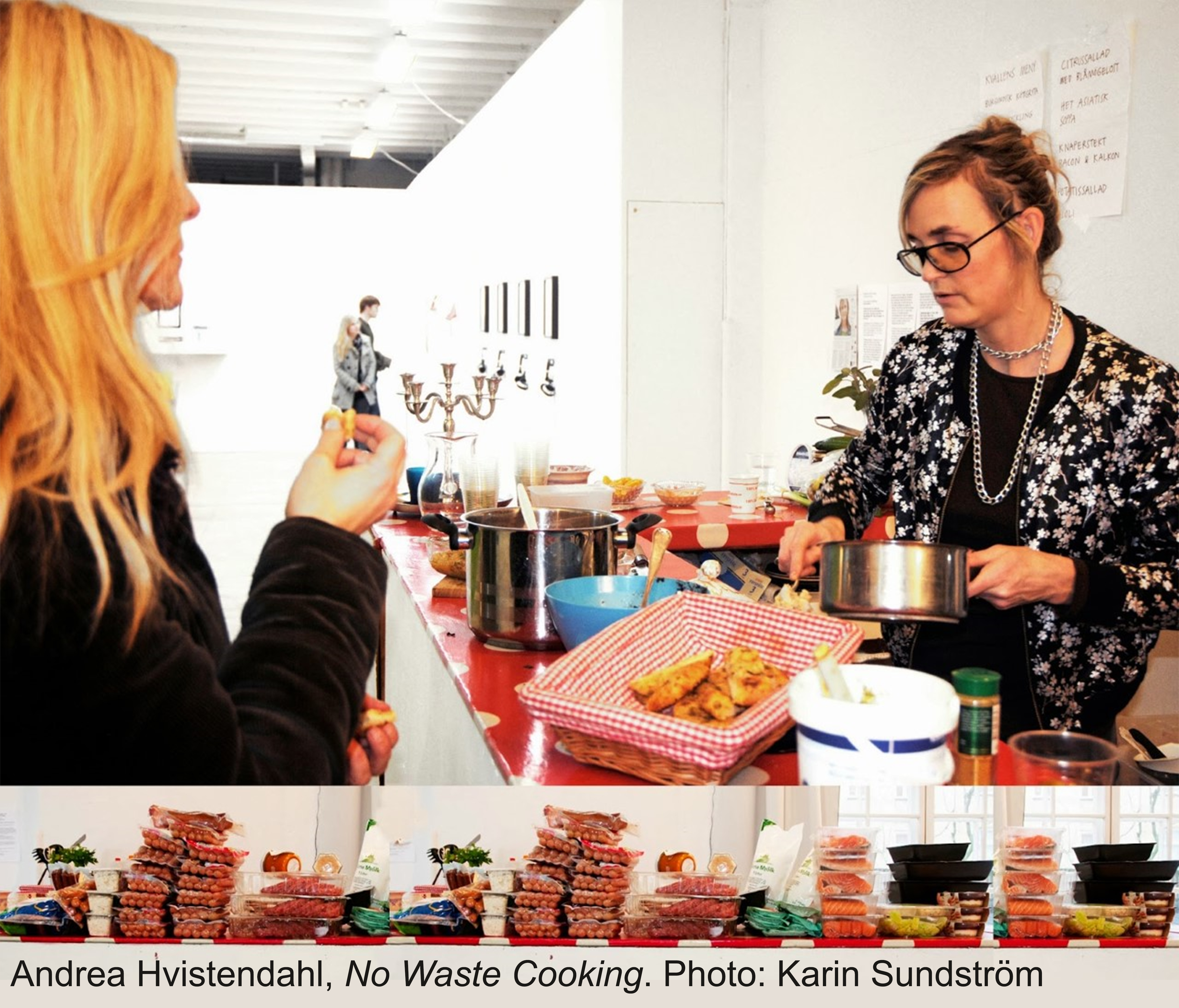No Waste Cooking – An Exploration of Politics as Redistribution of the Sensible
DOI:
https://doi.org/10.7577/information.3634Sammendrag
Life in affluent, big city society with huge amounts of easily accessible food results in extensive food waste on different levels, causing greenhouse gas emissions. The aim of this article is to explore and discuss whether—and if so, how—an urban art action may contribute to displacement in social food practices. Using the Swedish artist Andrea Hvistendahl’s ongoing project No Waste Cooking as a case study, I approach this art action through Jacques Rancière’s concept of politics as distribution and redistribution of the sensible. The most important research questions are: How is No Waste Cooking involved in redistributing social food waste practices? How is the project related to similar projects in visual culture?
No Waste Cooking concerns saving and upgrading food from grocery stores that would otherwise be thrown away. As an urban gleaner, Hvistendahl gathers this food and intervenes between grocery stores and consumers, creating a space for leftovers, sensations and reflections. Food after its expiration date has become the fulcrum, the third thing, a common reference in which the artist, the visitors, as well as the readers are invited to reassess our values and behavior patterns on food, and elaborate and develop further discussion and proliferation. In this sense, No Waste Cooking has a didactic function, displaying ethical questions and possible ways to deal with them without straightforward answers. Albeit in a modest alteration, art becomes life.

Nedlastinger
Publisert
Hvordan referere
Utgave
Seksjon
Lisens
Opphavsrett 2019 Sissel Gunnerød

Dette verket er lisensiert under Creative Commons Attribution 4.0 International License.
Forfattere som publiserer med dette tidsskriftet må være enige i følgende vilkår:
a) Forfattere beholder opphavsrett, men gir tidsskriftet rett til første publikasjon med arbeidet, samtidig som artikkelen er lisensiert under en Creative Commons Attribution-lisens som tillater andre å dele arbeidet med en anerkjennelse og referanse til forfatterskap og første publikasjon i dette tidsskriftet.
b) Forfattere må ikke inngå separate, ytterligere kontraktsmessige ordninger for eksklusiv distribusjon av artikkelens publiserte versjon av arbeidet (for eksempel legge det til et institusjonelt arkiv eller publisere det i en fagbok), uten referanse en anerkjennelse av hvor artikkelen først ble publisert. Dette gjelder for eksempel artikler som publiseres i Nordisk Barnehageforskning og som senere blir del av et doktorgradsarbeid. Da er det viktig å ha tydelige referanser til hvor og når artikkelen er publisert første gang.
c). Forfattere kan ikke legge inn sine arbeid på nettet eller publisere dem i en doktoravhandling (for eksempel i institusjonelle arkiv eller på en hjemmeside) før eller under innsendings- og fagfellevurderingsprosessen, da dette kan skape uorden i referansesystemet til artikkelen.